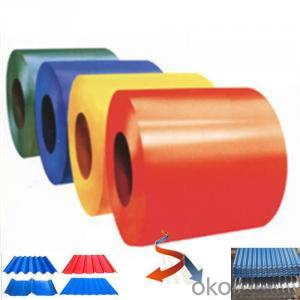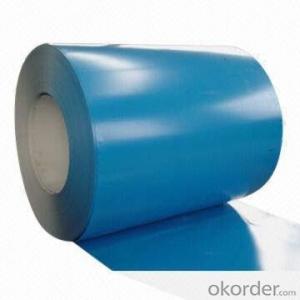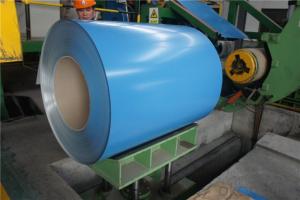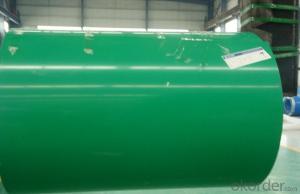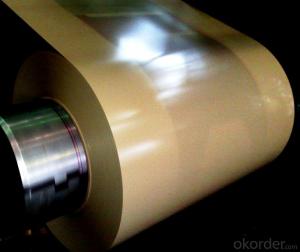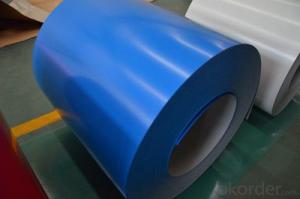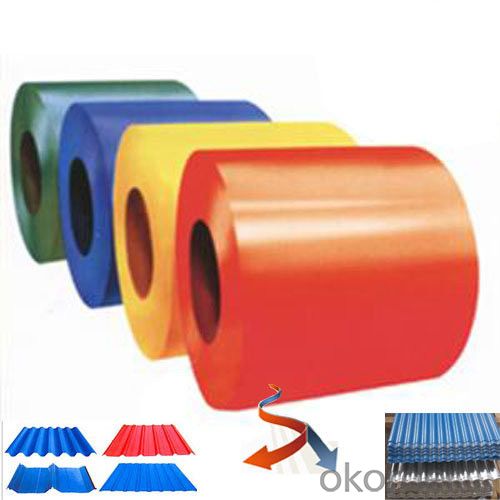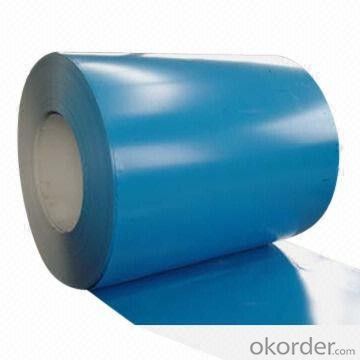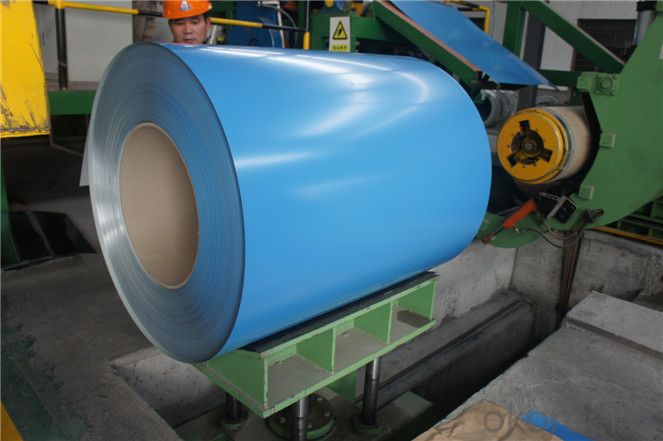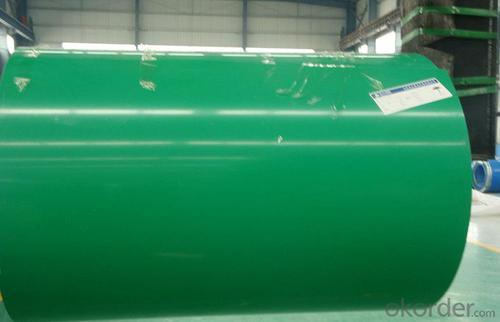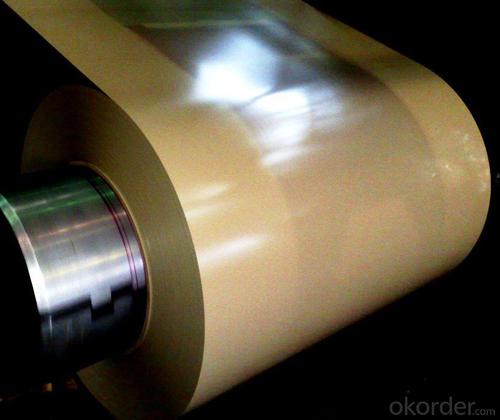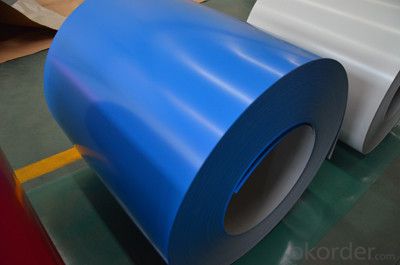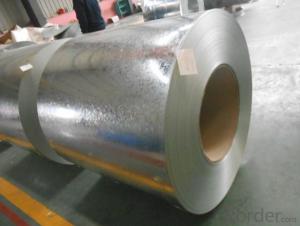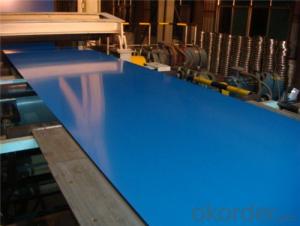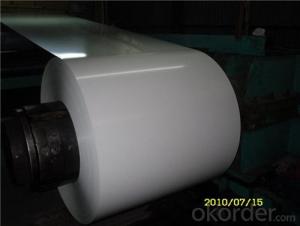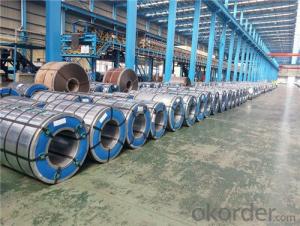BMP Z35 PPGI Rolled Steel Coil for Construction Roofing Constrution
- Loading Port:
- Shanghai
- Payment Terms:
- TT OR LC
- Min Order Qty:
- 100 m.t.
- Supply Capability:
- 30000 m.t./month
OKorder Service Pledge
OKorder Financial Service
You Might Also Like
Structure of BMP Z35 PPGI Rolled Steel Coil for Construction Roofing Constrution
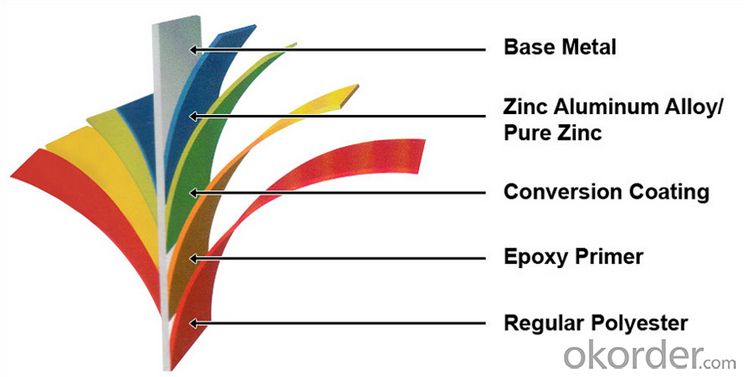
Description of BMP Z35 PPGI Rolled Steel Coil for Construction Roofing Constrution
PPGI is made by cold rolled steel sheet and galvanized steel sheets as baseplate, through the surface pretreatment (degreasing, cleaning, chemical conversion processing), coated by the method of continuous coatings (roller coating method), and after roasting and cooling.
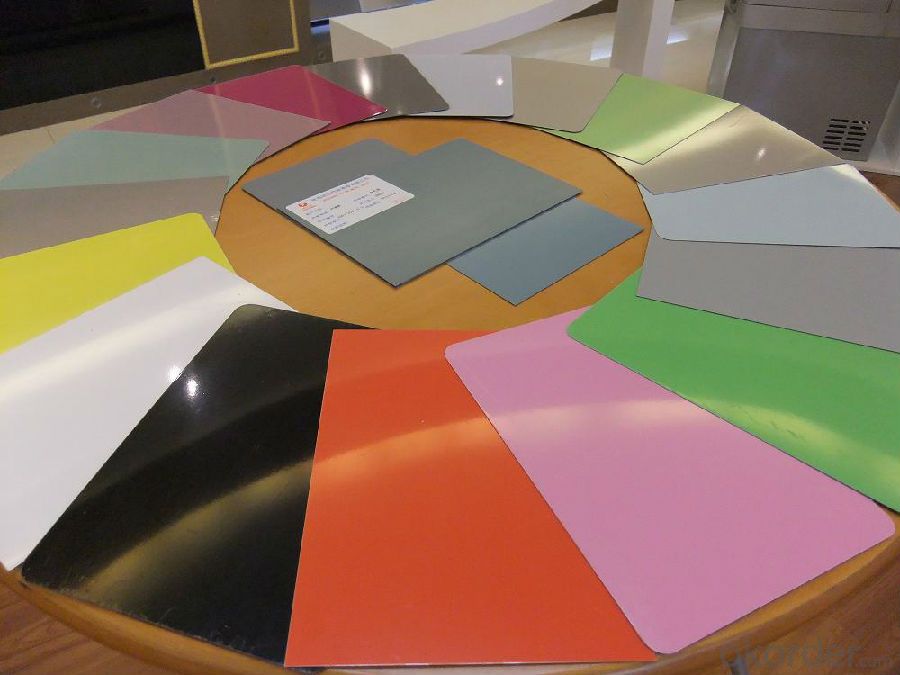
Main Feature of BMP Z35 PPGI Rolled Steel Coil for Construction Roofing Constrution
The construction industry: The roof structure, keel, grill, Clapboard, ceilings, fire shutter doors, etc; The light industry, the Automobile, agriculture, animal husbandry, fishery, casing of household Electronic application, civilian smoke stack, etc.
Applications of BMP Z35 PPGI Rolled Steel Coil for Construction Roofing Constrution
If the yield point is not pronounced, the value applies to R p0.2 ; if the yield point is pronounced, the value applies to R el . When the thickness is less than or equal to 0.7 mm and greater than 0.5 mm, the minimum value for elongation is reduced by 2 units. For a thickness less than or equal to 0.5 mm, the minimum value is reduced by 4 units.it is ideal for a wide range of applications, such as pre-engineered buildings, architectural panels, roofing, siding, cladding, and many other building components.and also used back plate of appliance; wide range of construction, furniture industry, transportation industry, etc.
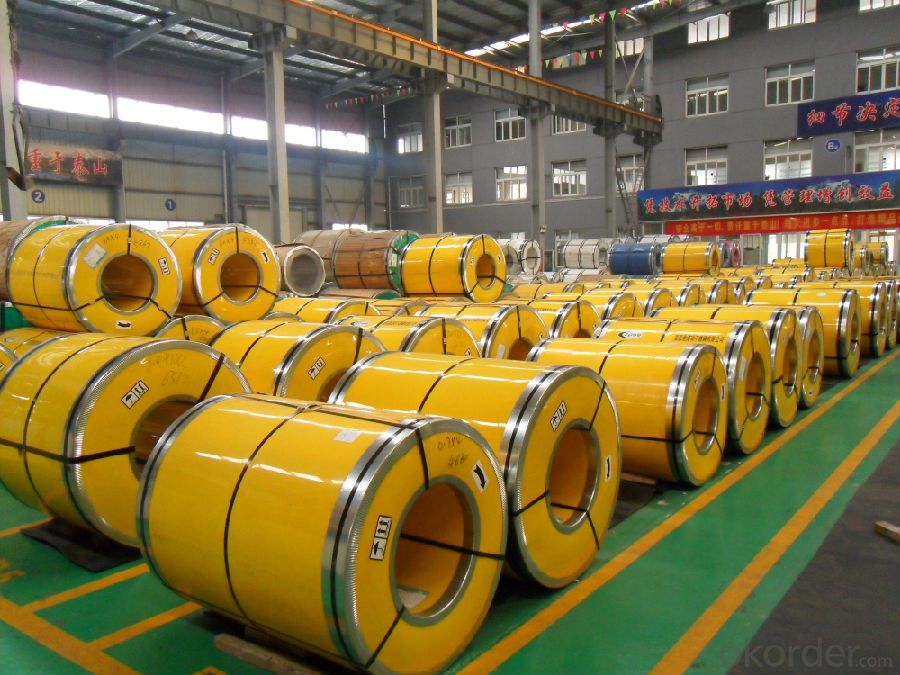
Specifications of BMP Z35 PPGI Rolled Steel Coil for Construction Roofing Constrution
Standard | ASTM A653, JIS G3302, GB/T3830-2006 |
Grade | SGCC, DX51D, A653, SGCH, Q235B |
Thickness | 0.125-1.0mm |
Width | 600-1250mm |
Base metal | Galvanized steel coils, Alumzinc steel coils, color coated steel coils |
Zinc coating | 40-275g/M2 |
Coil ID | 508mm/610mm |
Packing | Standard seaworthy export packing: 3 layers of packing, inside is kraft paper, water plastic film is in the middle and outside GI steel sheet to be covered by steel strips with lock, with inner coil sleeve. |
Delivery | Within 10-30days after signing contract |
Price | FOB& CNF& CIF price |
Payment terms | TT or LC, Western Union |
Capacity | 1000MT per month |
MOQ | 25MT/20GP |
Usage | construction, the manufacturing of cars, ships, containers and household electric appliances,other industries usage. |
FAQ of BMP BMP Z35 PPGI Rolled Steel Coil for Construction Roofing Constrution
We have organized several common questions for our clients,may help you sincerely:
1.Are you a factory or a trading company?
CNBM is a trading company in this industry over 30 years, located in Beijing
2.Are the products tested before shipping??
Yes, all of our PPGI and GI was qualified before shipping. We test every batch every day.
3.What's your normal delivery time?
Our delivery time about 15-20days for standard sizes, if you have other requirements like hardness, quanity and width ,it is about 20-40days. But don't worry ,we also try our best for the delivery time ,because time longer and our cost is higher.
- Q: How are steel coils inspected for surface quality?
- Steel coils are inspected for surface quality through a meticulous process that involves various methods and technologies. The inspection is crucial as it ensures the coils meet the required standards and are free from any defects or imperfections. Here are the steps involved in inspecting steel coils for surface quality: 1. Visual Inspection: Initially, the coils undergo a visual inspection where trained personnel visually examine the entire surface for any visible defects such as scratches, dents, or any irregularities. This step helps identify any obvious issues that can be detected through visual observation. 2. Magnetic Particle Inspection: This non-destructive testing method involves applying a magnetic field to the steel coil's surface and then applying a magnetic particle solution. Any surface cracks or defects will cause the magnetic particles to cluster, making them visible under proper lighting. This technique is highly effective in detecting surface cracks and other surface abnormalities. 3. Eddy Current Testing: This method of inspection utilizes electromagnetic induction to identify surface defects. An eddy current probe is passed over the steel coil's surface, and any variations in the electrical current induced by the magnetic field will be detected. This technique is particularly useful for detecting surface cracks, pits, or corrosion on the coil's surface. 4. Ultrasonic Testing: Ultrasonic waves are used to inspect the steel coil's surface for any hidden defects such as subsurface cracks or inclusions. High-frequency sound waves are transmitted into the material, and any changes in the sound wave pattern that are reflected back indicate the presence of defects. Ultrasonic testing is highly reliable and can detect even the smallest defects within the steel coil. 5. Surface Roughness Measurement: The surface roughness of the steel coil is measured using specialized equipment. This measurement helps determine if the surface meets the required smoothness standards. The equipment scans the surface and provides detailed information about the roughness, enabling the inspector to ensure it falls within the acceptable range. Overall, steel coils undergo a comprehensive inspection process that combines visual examination with advanced testing methods such as magnetic particle inspection, eddy current testing, ultrasonic testing, and surface roughness measurement. These inspection techniques help identify and evaluate any potential defects or surface irregularities, ensuring that the steel coils meet the required surface quality standards.
- Q: Molten steel changes to solid steel at its __________ point. Could you please fill in the blank? Thank you so much, it is greatly appreciated. I have been looking for the answer to this question for a long time, but I never understand what the websites are trying to say because I don't have that big of a vocabulary and don't know what they mean. I've seen things saying steel boiling point, steel melting point, and steel freezing point. I don't know what any of those mean, and they might be the answer. Please help me. Thank you.
- Carbon 'tempers' steel, by making it harder and less prone to bending (ductility). It fits the carbon atoms into the spaces in between the crystal lattice structure of the iron atoms. Too much carbon means the steel becomes more brittle, harder to weld and thus more likely to shatter under stresses which are perpendicular (shear forces) to the crystal structure of the molecules. It also is very difficult to work, requiring very high temperatures.
- Q: Looking for a new entry door for my home If someone would explain the features and benefits of both fiberglass and steel doors I would greatly appreciate it!!
- price and weight. fiberglas is better but more $
- Q: Explain how you could make plastic sink and steel float?
- Plastics that are more dense than water will sink. For floating, you need to displace more water than you weight, so assuming steel is 10 times denser than water you will need to displace 10 times as much water weight as your steel occupies. This is easy for a wide hull ship (barge)
- Q: What are the different types of steel coil cutting tools?
- In the market, one can find a variety of steel coil cutting tools. These tools have been specifically designed to efficiently and accurately cut steel coils. Some of the commonly used types of steel coil cutting tools include: 1. Slitting shears: These shears are widely utilized to cut steel coils into narrow strips. Equipped with multiple blades, slitting shears offer clean and precise cuts without causing any damage to the material. They are typically employed in high-volume production and are capable of handling different thicknesses of steel coils. 2. Rotary shears: Another commonly used cutting tool for steel coils is the rotary shear. These shears consist of rotating blades that shear through the material as it passes through them. Rotary shears are perfect for cutting medium to thick steel coils and are known for their high cutting speed and accuracy. 3. Guillotine shears: Guillotine shears are heavy-duty cutting tools that can handle thick steel coils. They operate by exerting a downward force to cut through the material in one clean stroke. Renowned for their power and precision, guillotine shears are suitable for cutting large volumes of steel coils. 4. Laser cutting machines: Advanced cutting tools like laser cutting machines employ a high-powered laser beam to cut through steel coils. These machines offer precise and intricate cuts with minimal heat distortion. Laser cutting machines are ideal for cutting complex shapes and patterns on steel coils. 5. Water jet cutting machines: Water jet cutting machines utilize a high-pressure stream of water mixed with abrasive particles to cut through steel coils. This method provides high accuracy and does not generate heat, making it suitable for cutting heat-sensitive materials. Water jet cutting machines can cut through various thicknesses of steel coils and produce smooth edges. Each type of steel coil cutting tool has its own advantages and is suitable for different applications. The choice of tool depends on factors such as the thickness of the steel coil, required precision, production volume, and budget.
- Q: Is there any noticable or perceived difference between smoking out of a pipe with a brass screen and a stainless steel screen?
- Its not a good idea to make the whole thing of metal. Metal is a good conductor of heat and its bound to get too hot for you lips during sustained use. Thats assuming your going to smoke tobacco with it. If you plan on smoking small hits of a particular substance then it may be alright. Mind you pipes are poor choice for this kind of smoking. So sticking with the tobacco pipe I would make it out of wood or talc not metal.
- Q: Can steel coils be used in the production of construction machinery?
- Indeed, the utilization of steel coils is applicable in the manufacturing process of construction machinery. Frequently, steel coils serve as the primary elements employed in the production of diverse components, including frames, chassis, gears, and structural parts for construction machinery. The exceptional strength and enduring nature of steel render it the perfect material for construction machinery, given its ability to withstand demanding operational conditions. Furthermore, steel coils offer effortless shaping, welding, and fabrication procedures to achieve the desired shapes and sizes, thereby providing customization and adaptability in the production of construction machinery.
- Q: How do steel coils affect the quality of finished products?
- Steel coils can greatly impact the quality of finished products in various industries. One of the key ways steel coils affect product quality is through their dimensional accuracy and consistency. When the steel coils are not properly manufactured or have irregular dimensions, it can lead to issues in the production process and result in finished products that do not meet the desired specifications. Furthermore, the surface quality of steel coils is critical in determining the final appearance and performance of the finished products. Coils with surface defects, such as scratches, rust, or unevenness, can negatively impact the aesthetic appeal of the products, making them less desirable to customers. Moreover, these defects can also affect the functionality and durability of the finished products, leading to potential failures or reduced lifespan. The mechanical properties of steel coils also play a vital role in determining the quality of finished products. Coils with inconsistent or inadequate mechanical properties can compromise the strength, toughness, and overall performance of the end products. For example, in industries such as automotive or construction, where strength and reliability are crucial, the use of steel coils with the wrong mechanical properties can lead to safety hazards or structural failures. Additionally, the chemical composition of steel coils can significantly influence the quality of finished products. The presence of impurities or variations in the alloying elements can affect the material's corrosion resistance, weldability, and other essential properties. This, in turn, can impact the longevity and functionality of the final products. In summary, steel coils have a substantial impact on the quality of finished products. Their dimensional accuracy, surface quality, mechanical properties, and chemical composition all contribute to the overall performance, appearance, and durability of the end products. Therefore, it is crucial to ensure that steel coils used in manufacturing processes meet the desired standards to achieve high-quality finished products.
- Q: What is the shelf life of steel coils?
- The shelf life of steel coils can vary depending on various factors such as the type of steel, its specific application, and the storage conditions. Generally, steel coils have a long shelf life as they are highly durable and resistant to corrosion. When stored properly, such as in a dry and controlled environment, steel coils can last for many years without any significant degradation in quality. However, it is important to note that certain types of steel, such as galvanized steel, may have a shorter shelf life due to the potential for corrosion if the protective coating is compromised. Additionally, if steel coils are exposed to extreme weather conditions, high humidity, or chemicals, their shelf life may be reduced. To ensure the longevity of steel coils, it is recommended to store them in a covered area to protect them from moisture and direct sunlight. Proper stacking and handling techniques should also be followed to prevent any damage that could lead to premature deterioration. Ultimately, the shelf life of steel coils can vary, but with appropriate storage and handling, they can remain in good condition for an extended period, making them a reliable and long-lasting material for various applications.
- Q: How are steel coils used in the production of fencing materials?
- Steel coils are commonly used in the production of fencing materials as they provide a strong and durable base for manufacturing various types of fences. These coils are typically unrolled and cut into desired lengths, which serve as the main structural component of the fence. Additionally, the steel coils can be further processed to create different fencing designs and features, such as chain link or wrought iron patterns. Overall, steel coils are essential in the production of fencing materials due to their strength, versatility, and ability to withstand harsh environmental conditions.
Send your message to us
BMP Z35 PPGI Rolled Steel Coil for Construction Roofing Constrution
- Loading Port:
- Shanghai
- Payment Terms:
- TT OR LC
- Min Order Qty:
- 100 m.t.
- Supply Capability:
- 30000 m.t./month
OKorder Service Pledge
OKorder Financial Service
Similar products
Hot products
Hot Searches
Related keywords
